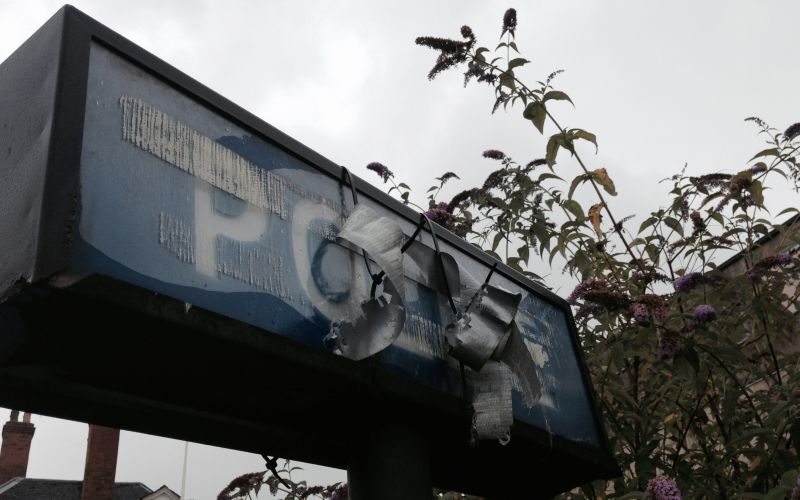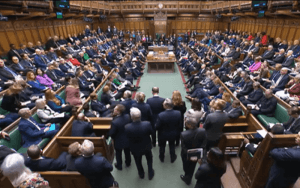New Home Office figures that show a steep rise in recorded disability hate crime during the pandemic have sparked alarm among disabled campaigners, as well as fresh concerns over the contrasting performances of different police forces.
The figures show an increase of nine per cent in recorded disability hate crime across England and Wales in 2020-21, compared with the previous year, even though the country was in lockdown for large parts of the year.
The total of 9,208 recorded disability hate crimes does not include Greater Manchester Police (GMP), as the force had been unable to produce data for 2019-20. With GMP included, the figure reaches 9,943.
The Home Office says in a report on the figures that increases in reported hate crime over the last six years are thought to have been driven by improvements in recording by police forces, and growing awareness.
But it accepts that there “appear to have been short-term genuine rises in hate crime following certain trigger events”.
Inclusion London said this week that it believed the actual increase in disability hate crime (DHC) during the pandemic was “a lot higher” than the nine per cent reported by police forces.
It said that DHC referrals to the disabled people’s organisations involved in its London Deaf and Disabled People Organisations Hate Crime Partnership rose by 30 per cent at the time of the first lockdown 18 months ago.
Inclusion London, which published a report on the partnership’s work this week, said this increase in referrals continued throughout the pandemic.
Louise Holden, Inclusion London’s hate crime partnership project manager, said: “Although the reasons for underreporting are complex, one of them is that we are finding that most disabled people our organisations are in contact with do not want to report to police due to a severe distrust of the police and how they will be treated.”
This distrust, she said, had been eroded by highly-publicised cases in which police officers had abused disabled people.
She highlighted the cases of two officers from Bedfordshire police who attacked and chased an autistic man into his own home as he put out wheelie-bins, in 2014, and of a Metropolitan police officer who struck a black disabled teenager with his baton more than 30 times in a minute, in May 2019, after she had flagged down his car to ask for help.
The Home Office figures show sharply contrasting figures among different forces, with 937 recorded DHCs by West Yorkshire police, but only 527 by the Metropolitan police, a similar figure to Hampshire police, which covers a far smaller population but still recorded 515 DHCs.
Anne Novis, a member and former chair of the Met’s disability independent advisory group (disability IAG), former chair of Inclusion London and a long-time campaigner on disability hate crime, said she believed that Metropolitan police officers were still too often treating such crimes as anti-social behaviour.
She said it was frustrating that after nearly 25 years of pushing the force to take DHC more seriously it was still “making the same mistakes, or downright ignoring us”.
She said: “Officers are not getting the training they need to identify difference, and no one is leading on disability hate crime.
“The stats reflect the lack of recognition of disability hate crime by officers, not our lived experience.”
Her comments come five years after an initiative she developed with the force saw a record increase in recorded DHCs.
The Disability Hate Crime Matters initiative aimed to improve the way the force identified, investigated and responded to disability hate crime, but Novis said the Met was no longer implementing the lessons learned from that scheme.
She said: “Until [the Met] actually does what we proved worked with Disability Hate Crime Matters, or something similar, Deaf and disabled people will not get the justice or support they need.”
Sue Groves, the disabled chair of Medway independent police advisory group and an independent critical incident advisor to Kent police (which reported 445 DHCs), said there was still a large gap between the number of DHCs recorded by police forces and the number of such incidents reported in the Crime Survey for England and Wales.
The latest crime survey figures (PDF), published last year, showed about 50,000 disability hate crime incidents a year in the three years from 2017-18 to 2019-20, but also suggested a significant drop compared with the previous decade.
Groves said that – anecdotally – there had been a rise in hostility towards disabled people on public transport during the pandemic, connected with confusion and “poor initial messaging” about those who were exempt from wearing masks for impairment-related reasons.
And she said she believed there was “more to be done” to encourage disabled people to report offences to police and so narrow the “huge” gap between recorded disability hate crime and the actual number of incidents.
She said that recording of DHCs was patchy across police forces, which was partly because there were no standalone aggravated offences for disability hate crime, as there are for race and religion, so police officers cannot, for example, charge an offender with an offence of assault aggravated by disability hostility.
She said: “I know that Kent police have put in a lot of effort to raise awareness and worked with the Crown Prosecution Service to improve the outcomes for disability hate crime, but also recognise there is more to do.”
A Metropolitan Police Service (MPS) spokesperson said the force worked closely with the disability IAG and other independent bodies “to ensure we are listening to the views of those affected by hate crime and responding accordingly” and had a force lead on hate crime, who “oversees all strands” and ensures a consistent approach.
She said the force had “refreshed its overall approach to tackling hate crime” to improve support for victims, ensure a stronger response towards offenders and improve the accessibility of its service.
And she said the MPS has redeveloped its structure on responding to hate crime “with an enhanced focus on performance and outcomes”, following a review.
Superintendent Martin Kirby, the MPS lead responsible officer for hate crime, said: “The recent changes we have made in the MPS are aimed at ensuring our officers and staff across the MPS understand the significant impact hate crime has on London’s victims and communities.
“We want to ensure our staff are equipped with the best advice and guidance to enable them to deliver a first-class service to victims of all hate crime and bring offenders to justice.
“All of our basic command units now have hate crime and performance officers who can also provide guidance and expertise to those investigating hate crime locally and increase the low threshold for reporting.”
A note from the editor:
Please consider making a voluntary financial contribution to support the work of DNS and allow it to continue producing independent, carefully-researched news stories that focus on the lives and rights of disabled people and their user-led organisations.
Please do not contribute if you cannot afford to do so, and please note that DNS is not a charity. It is run and owned by disabled journalist John Pring and has been from its launch in April 2009.
Thank you for anything you can do to support the work of DNS…

 Met took formal action on just nine disability hate crimes in 2023, hustings is told
Met took formal action on just nine disability hate crimes in 2023, hustings is told Stammering charity calls on parliament to act on ‘febrile atmosphere’ in debates
Stammering charity calls on parliament to act on ‘febrile atmosphere’ in debates Disabled politician won’t fight general election after ‘intolerable’ hate crime
Disabled politician won’t fight general election after ‘intolerable’ hate crime